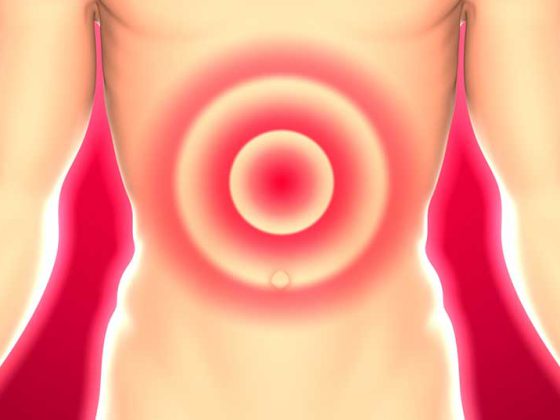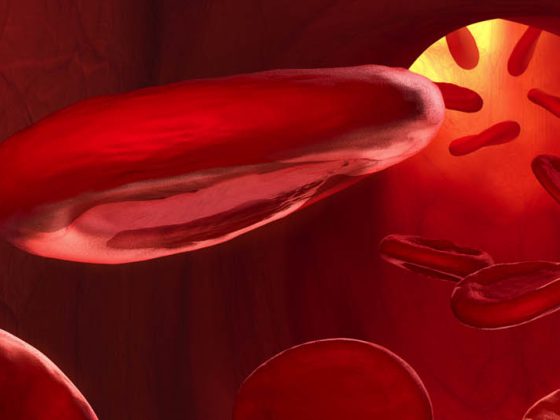Targeted therapy, based on molecular characterization of cancer cells, has led to major advances in oncology in recent years. But this is true only for some cancer entities; steel, beam and chemo still dominate for most. In addition, resistance to targeted drugs has created new challenges. At the 32nd German Cancer Congress in Berlin, there was a good overview of the often difficult therapeutic decisions in cancer patients. The following is the situation for vulvar, gastric, and lung carcinoma.
The incidence of vulvar carcinoma has increased significantly in recent decades. Most striking is an increase in new cases in women under 50 years of age, usually with HPV-dependent precancerous lesions, reported PD Uwe Torsten, MD, Berlin.
About 40% of all vulvar cancers are HPV-positive, according to his data, which is why prevention via HPV vaccination is of high importance. In contrast, HPV-independent vulvar carcinomas associated with lichen sclerosus predominate in women of older age. The total number of new cases in Germany is currently over 4000 per year, the 5-year survival has been constant for years at >60%.
Therapy guidelines for vulvar carcinoma
Recommendations from the new S2k guideline on vulvar cancer were already presented at the congress, but have not yet been finalized and published.
The standard of therapy is resection of the tumor while sparing important structures such as the clitoris and urethra. The consensus is a healthy tissue margin of ≥3 mm, but this can possibly be reduced in consultation with the patients, e.g., to preserve the clitoris, said Prof. Monika Hampl, MD, Düsseldorf. The risk is post-resection after evaluation by the pathologist or radiation. Primary radiochemotherapy may be considered in cases of inoperability, large tumors, or infiltration of the anus.
The decision on the extent of lymphadenectomy is difficult in vulvar cancer patients. Should only superficial or also deep lymph nodes be removed and should the lymphadenectomy be performed on one or both sides? The decision depends primarily on the depth of invasion of the tumor, reported Prof. Wolfgang Weikel, MD, Mainz, Germany, and is highly relevant to the risk of recurrence. For unifocal tumors with a size of <4 cm, biopsy of the sentinel lymph node is the primary option; if the sentinel is negative, inguinofemoral lymphadenectomy may not be necessary, Weikel said. “Sentinel biopsy saves a lot of morbidity, but it also means a lot of responsibility,” he emphasized.
Gastric cancer: Quality of life counts in the palliative situation
In patients with gastric carcinoma at stages T1 and T2, N0, R0 resection with reduction of local and systemic recurrence is the goal of multimodality therapy. In early stages, endoscopic resection may be possible. However, the standard is gastrectomy, and in patients with distal gastric carcinoma in stages T1 and T2 (intestinal type), alternatively subtotal resection with preservation of about one-fifth of the stomach, reported Prof. Arnulf Hölscher, MD, Kiel, Germany.
If the resection is performed with curative intent, removal of the regional lymph nodes of compartments 1 and 2 (D2-LAD) is also indicated. In addition, adjuvant radiochemotherapy is recommended in most patients with adenocarcinoma of the stomach, said Prof. Wilfried Budach, MD, Düsseldorf, Germany. Studies have demonstrated in patients with intestinal-type tumors that even in R0 resection and D2-adequate lymphadenectomy, the approach with radiochemotherapy and surgery provides an advantage compared with surgery alone.
In the palliative situation, the primary goal is to improve quality of life, not to prolong life, Prof. Hölscher said. The results of palliative resection are not very good, with 1-year survival rates of about 33%. In perioperative therapy, there are different standards worldwide. Common practice in Europe is pre- and postoperative chemotherapy.
Lung cancer: Only low long-term survival despite therapeutic progress
Great progress has been made in lung tumors, which can now be classified into molecular entities and treated in a biomarker-stratified manner. However, depending on tumor stage, prognosis remains poor, with an overall 5-year survival of only 15%.
In stage IV, systemic drug therapy is the basis of treatment. In patients with advanced NSCLC and treatable gene aberrations (ALK, EGRF), tyrosine kinase inhibitors are a critical step in improving survival and quality of life. However, resistance to the selectively acting inhibitors develops as a consequence of first-line therapy, but often also via complex mechanisms, explained Prof. Martin Schuler, MD, Essen, Germany. Second-generation compounds usually allow patients to respond again. If ALK-rearranged tumors are resistant to crizotinib, therapy with ceritinib or alectinib (not yet approved) usually helps for eight to nine months. The CNS effect of these substances is also particularly important.
Therapy in patients with EGFR-positive lung cancer.
EGFR mutations are detected in about 12% of all patients with EGFR-positive lung cancer, for whom afatinib, erlotinib, or gefitinib are indicated as first-line therapy, Prof. Schuler said. New inhibitors such as osimertinib and rociletinib are currently being tested for EGFR T790M-associated resistance. Another strategy to overcome resistance to specific EGFR inhibitors is combination therapies such as platinum-based chemotherapy plus pemetrexed.
New therapeutic option: checkpoint inhibitors
However, 85% of all NSCLC patients have no oncogenic alteration, said Prof. Martin Reck, MD, Hamburg, Germany. For these patients, immunotherapy with checkpoint inhibitors, particularly via inhibition of the PD-1/PD-L1 pathway (nivolumab/pembrolizumab), is an important advance over platinum-based chemotherapy. The signaling pathway enables tumor cells to evade immune defenses. However, many questions about PD-1 inhibitor therapy remain unanswered, Reck emphasized, such as the importance of PD-1 expression, combination therapy options, and efficacy in first-line therapy and CNS metastases.
Source: 32nd German Cancer Congress, Feb. 24-27, 2016, Berlin
InFo ONCOLOGY & HEMATOLOGY 2016; 4(2): 40-41.











